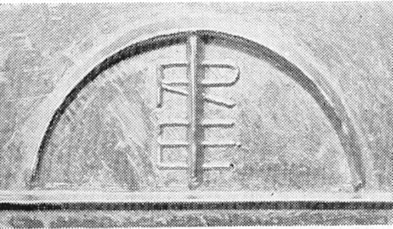
REM Monogram – Robert E. Martens – Cast Aluminum – 1954
Robert E. Martens was born in Illinois in 1919 but lived most of his life in Charleston, West Virginia. He studied architectural design at Cranbrook Academy of Art under the guidance of Eliel Saarinen and sculpturing under the direction of Carl Milles. Later he also studied in the Department of Agriculture at Yale University. While overseas during WWII the sculptures he created caught the eye of Lt. J.F. Saarade of the Free French Forces who opened his studio in Oran Algiers for Martens to work.
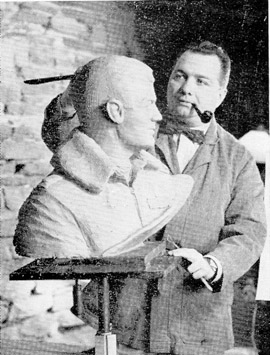
Robert E. Martens shown working on Portrait of Major Charles E. “Chuck” Yeager – 1955
Martens returned home to Charleston after the war and began working with his father in Martens and Son, Architects. Martens felt strongly that sculpture played an important role in enriching an environment. In 1952 Martens wrote in West Virginia State Magazine:
“Today we are approaching a three dimensional presentation, whether in movies, in sound recordings, or in building ornament”
Martens incorporated this theory into practice in utilizing decorative sculptures in the United Carbon Building (now Boulevard Tower) in Charleston; the atomic symbol for the Science Hall Building at West Virginia Institute of Technology; and, at numerous churches in the state.
In April of 1955 Woodrums of Charleston presented an exhibition of sculpture by Robert E. Martens.Here are some highlights from the catalog of that show.
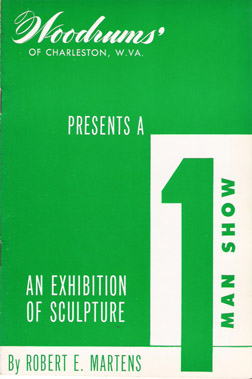
Woodrums of Charleston Exhibition catalog cover – April 28 – May 12, 1955
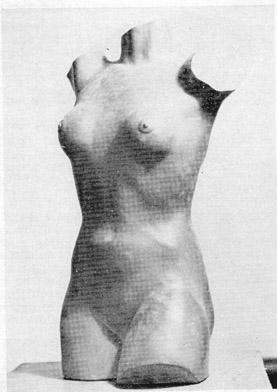
Torso – Robert E. Martens – Cast Stone – 1937
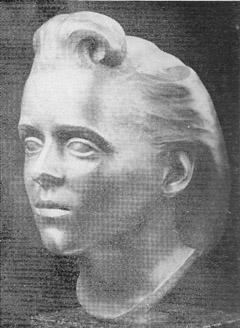
Portrait of Joan – Robert E. Martens – Bronze – 1938

Kind Spirit – A Portrait – Robert E. Martens – Cast Stone – 1953
Next – The United Carbon Building and the sculpture of Robert E. Martens.
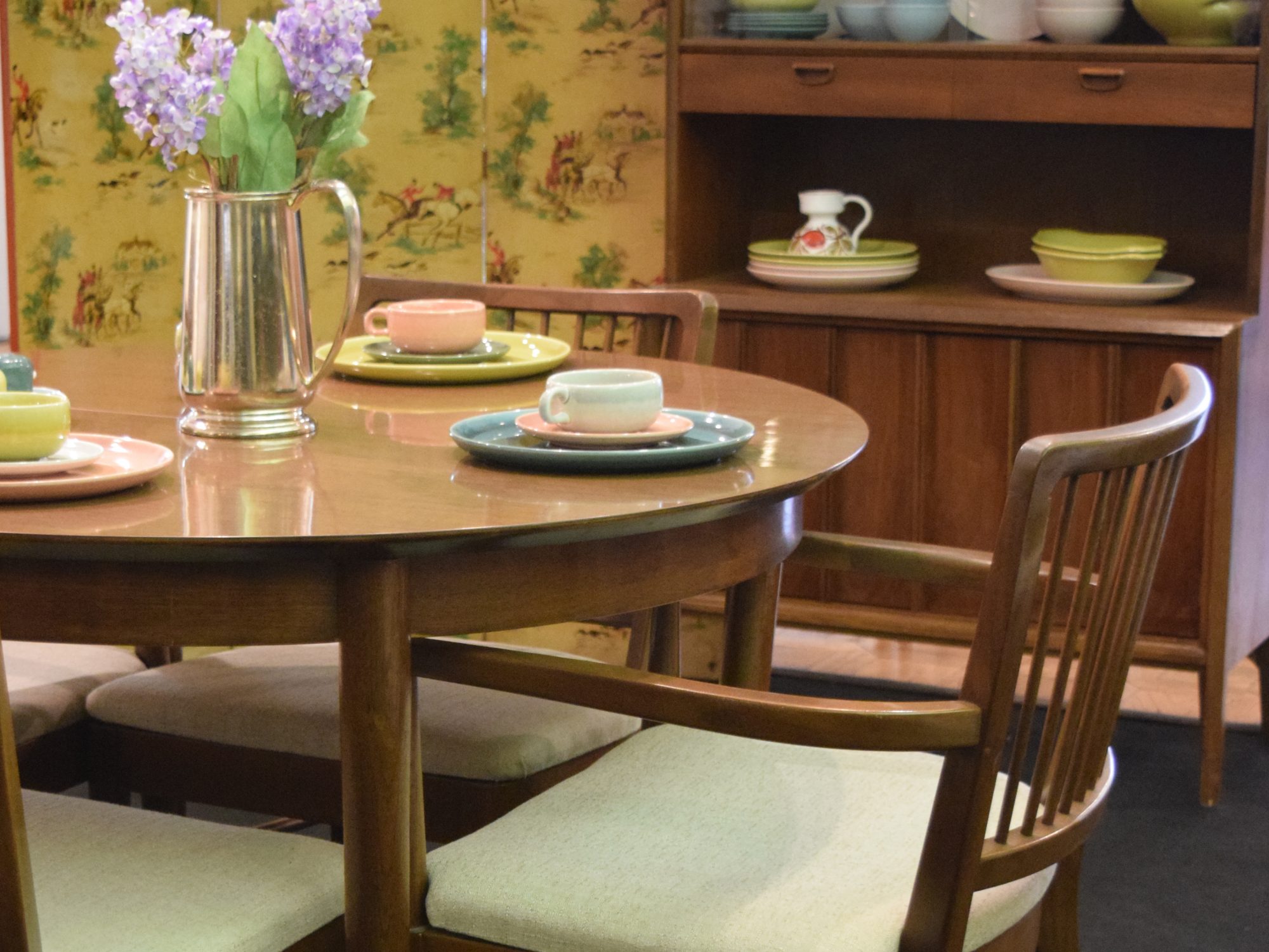
Comments are closed.